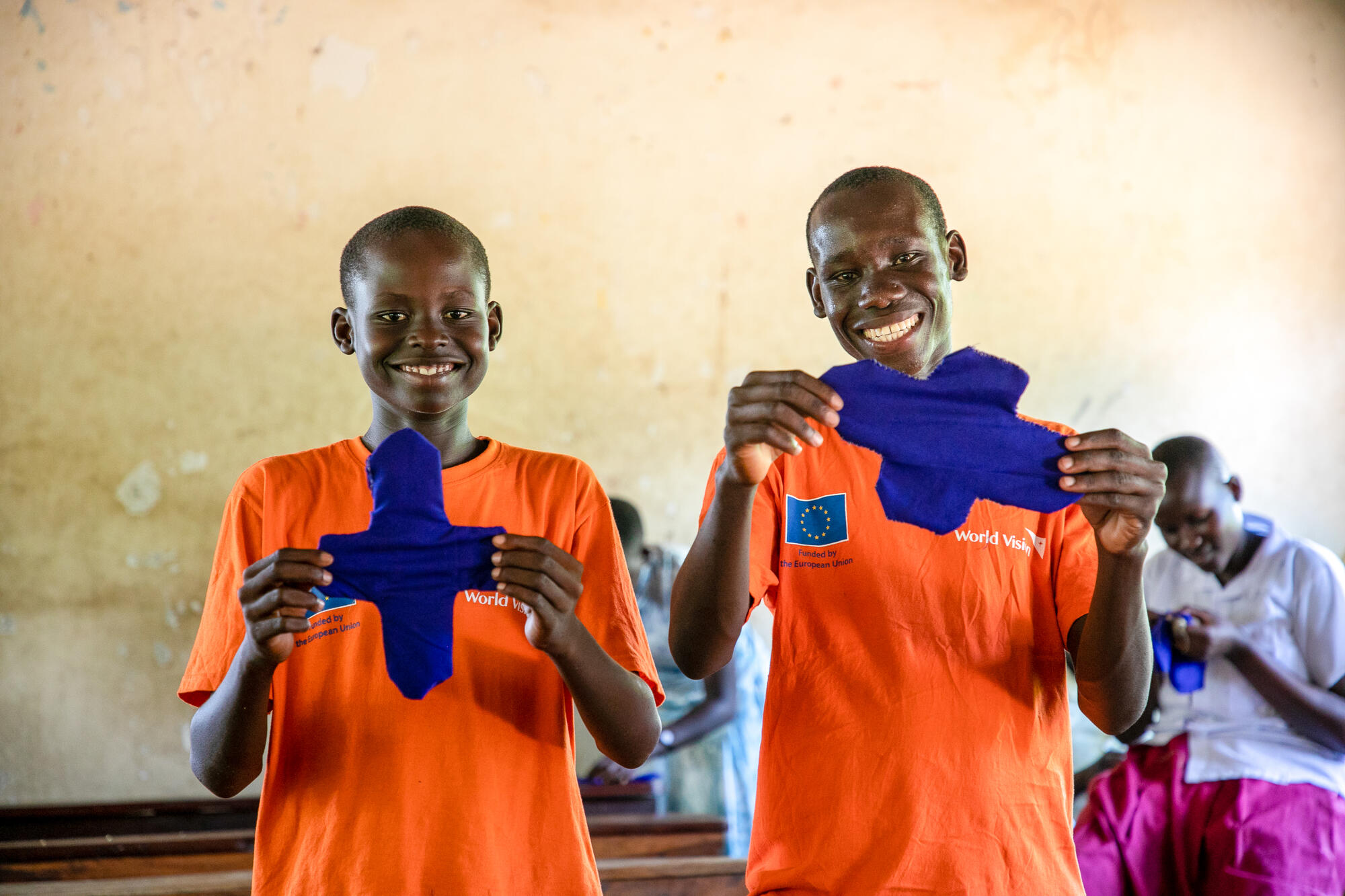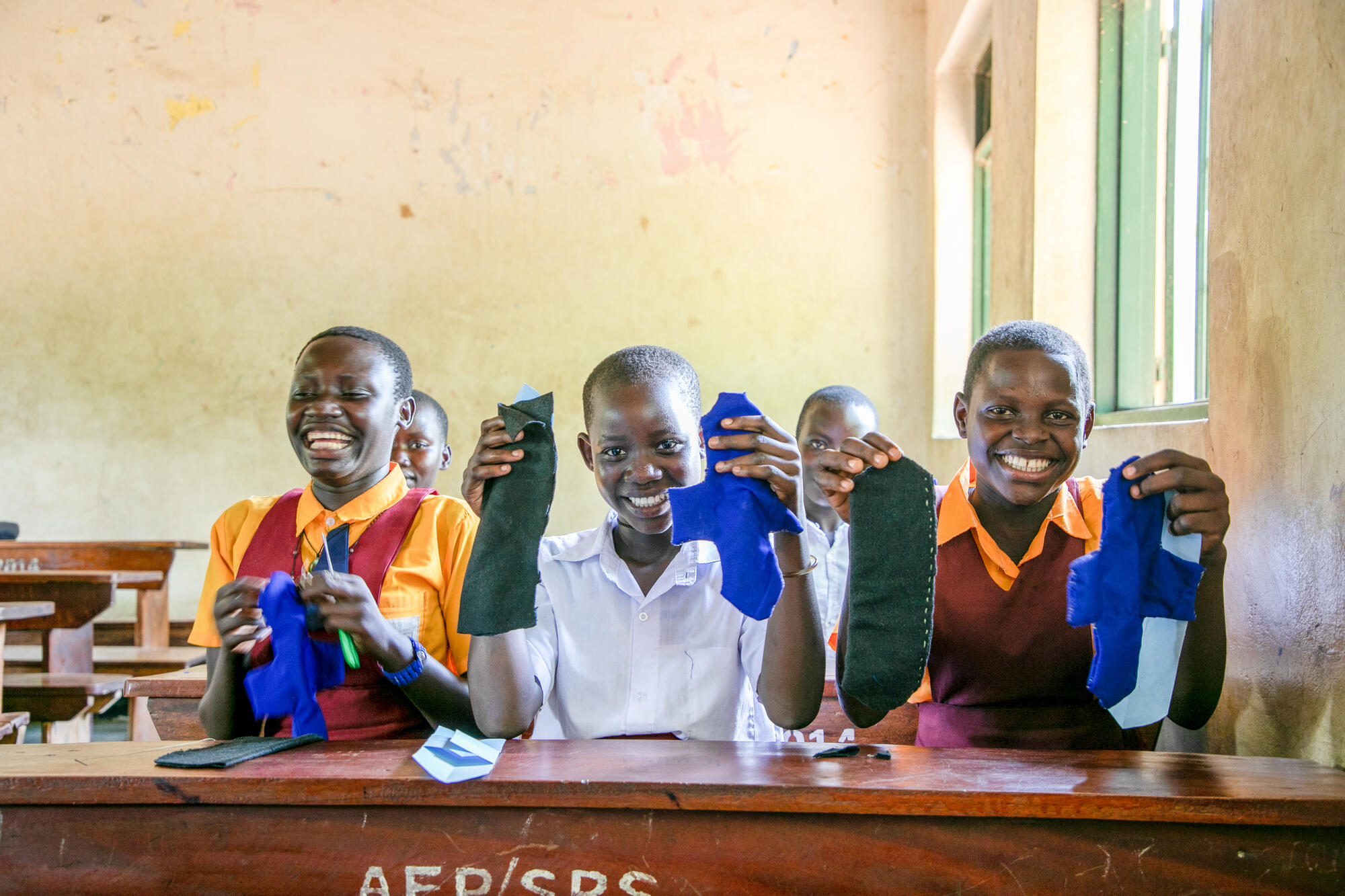Wiping out menstrual stigma to keep girls in school

While menstruation is a normal biological process that women and girls in puberty experience, it continues to be a target for discrimination and humiliation.
The memories of her classmates laughing at her because of blood stains are still fresh in the mind of the 14-year-old Suzan.
“I have not forgotten anything that happened on that day,” says Suzan, shaking her head in disbelief. “I still hear the children laughing at me.”
It all started when Suzan stood up to answer a teacher’s question and heard whispers followed by loud laughter from the back. When she turned to check, all eyes were on her.
“I had soiled my clothes,” she says. “I didn’t know what had happened. I remember running out of class in shame and never wanting to return.”
Many girls like Suzan miss school because they are never ready for their periods. They lack access to essential hygiene kits such as sanitary pads, and only a tiny percentage have access to underwear.
A study by UNESCO found that one in 10 girls in Sub-Saharan Africa missed school during their period.
The story has to change.
Education is a powerful weapon in the fight against poverty. But too many girls, especially in refugee settlements, aren’t getting the education they deserve. A world where every girl goes to and stays in school is possible—but we need to ensure they have the proper hygiene kits to manage menstruation.
With the support of EU-ECHO, World Vision, in collaboration with partners—RICE-WN, CEFORD and Windle International—is keeping refugee girls in school by building their capacity to make themselves reusable sanitary pads. Already 565 girls and teachers from 25 schools in three refugee settlements of Imvepi, Rhinocamp and Palabek are making the essential hygiene kits.
“We used to see many girls helpless during their periods. At times, we gave them toilet tissue because it’s what we had,” says Kalimu, headteacher at one of the primary schools. “With the training, girls can concentrate in class without worrying about periods.”

And we’re not leaving out the boys and men. We deliberately involve them in menstrual hygiene management to become more aware of the natural process of menstruation and reduce the taboo surrounding it, including menstrual stigma and negative attitudes.
“Boys are now supportive,” says Dilis, child protection coordinator at World Vision. “They understand periods are not a sickness. They are no longer laughing at girls.”
Suzan is the eldest in a family of twelve. She and her siblings live with their uncle. Before, Suzan could not talk to her uncle about periods. But all that changed after she received training.
“No one had ever told me about menstruation, let alone what to do when it happens,” says Suzan. “Now, I know periods. I also know how to manage it well. When I learnt how to make reusable pads, I stopped worrying about periods.”
Suzan has shared the skills and knowledge gained from the training with all her family members, including her uncle. “Everybody at home is a menstruation expert. They all understand what it is and how to support each other when it happens,” she says with a smile.
Outside her family, Suzan is teaching girls in her community to make reusable pads. “I want to see change. I am teaching girls in my neighborhood because I do not want any of them shamed of a manageable natural process,” she says.
We need the partnership of the government, companies, and people like you—all actively working together to deliver real change.

Story and Photos by Brian Jakisa Mungu- Communications Officer